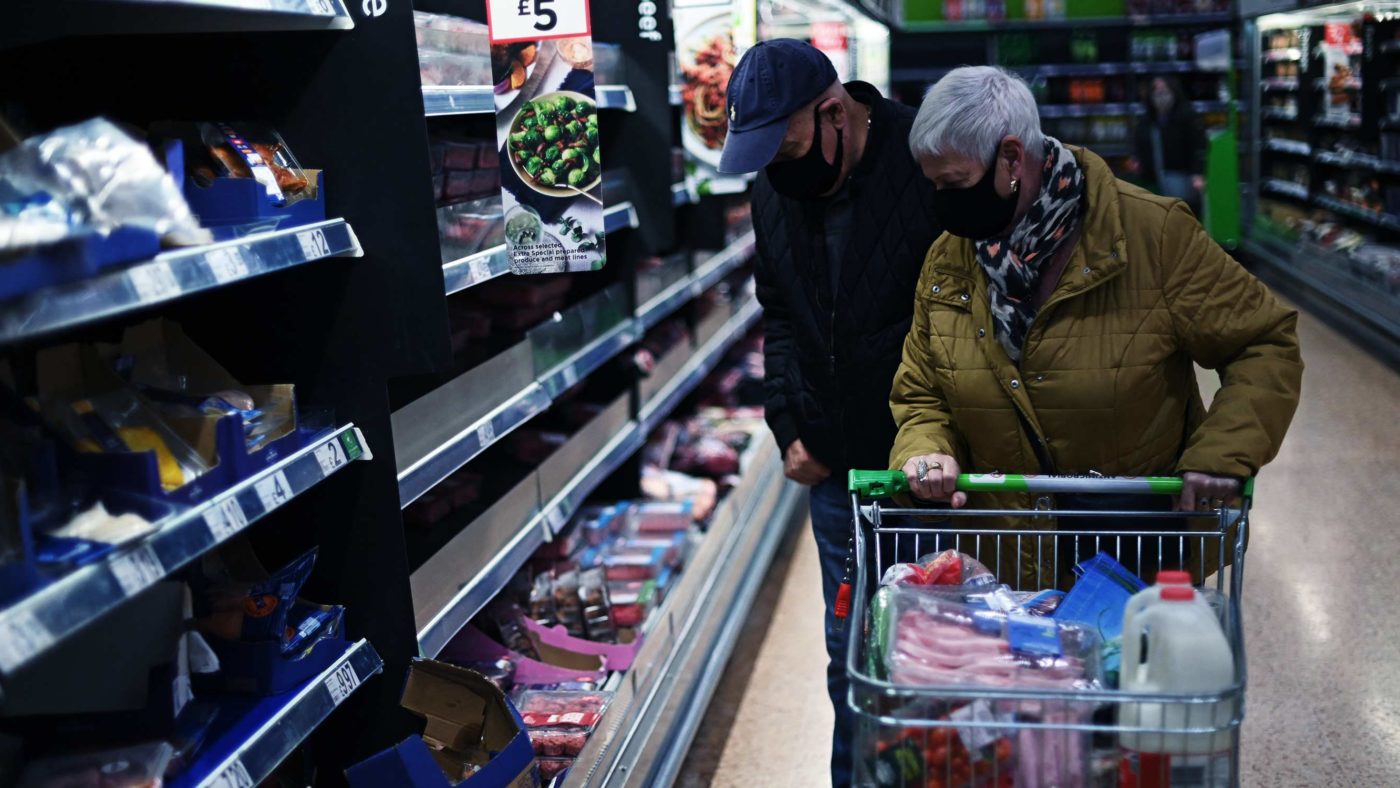It’s probably little consolation to Boris Johnson, but if we weren’t talking about PartyGate, defections and accusations of blackmail from the Tory whips, the public’s attention would probably be firmly fixed on a much more intractable issue – inflation.
Among those raising the alarm was food writer and campaigner Jack Monroe, who became famous for the ultra-cheap recipes she once relied on to feed herself and her son. Earlier this week Monroe detailed the soaring prices of staple foods in her local ‘Big Four’ supermarket – pasta up 141%, rice up 344%, baked beans up 45%. For the poorest households, she argued, the ONS estimate of 5.4% year-on-year inflation ‘grossly underestimates the real cost of inflation as it happens to people with the least’.
Now, Monroe’s local shop is not a national statistic, and she may be overly dismissive of the diligent work of ONS statisticians, but it’s true that broad measures often struggle to capture people’s individual circumstances. (There ought to be far more focus, too, on the ‘Poverty Premium’, where those with the least money end up paying more for everything from credit to insurance to metered electricity.)
It would be comforting to simply blame all this on a venal, uncaring political class or greedy corporate bosses ramping up prices willy-nilly. Some would also love to blame Brexit, without pausing to wonder why inflation is now higher in Ireland, Germany and the US than here in Britain.
Nor are high prices in supermarkets proof of the iniquities of capitalism, given the downward pressure on prices from cut-throat competition in the grocery sector (and command economies are not exactly renowned for cheap, readily available food).
The blunt truth is that, when it comes to price rises a lot of this is out of the hands of either governments or producers. The factors driving higher prices are mostly global, linked to pent-up pandemic demand, labour shortages and the surge in energy prices. The latter, in particular, filter through in all sorts of ways beyond higher household gas and electricity bills.
Take rice, one of the staple foods Monroe mentions. The main reason prices have gone up is that the cost of fertiliser has shot up. That, in turn, is a result of higher energy prices, as coal and gas are used as feedstocks for fertiliser. In India, a key exporter, a shortage of railway wagons has pushed up the cost of transport. Moving goods from Asia to Europe also costs a lot more these days – the charge for transporting a 40-foot container is more than ten times what it was a year ago.
That doesn’t mean there’s nothing the Government can do, however. In the short term, as Ben Ramanauskas argued recently, it could offer extra help for the poorest households with energy costs. This would be far preferable to a poorly targeted and ineffective VAT cut.
In the longer term, the Government needs to stop pursuing anti-market policies that unduly privilege the best off at the expense of the young and poor. From childcare, where government intervention has hamstrung providers, pushed up costs, and redirected public money to affluent families, to housing, where a thicket of unnecessary rules and kowtowing to Nimbys pushes up costs for everyone, but especially hits those on the bottom rung.
Click here to subscribe to our daily briefing – the best pieces from CapX and across the web.
CapX depends on the generosity of its readers. If you value what we do, please consider making a donation.


